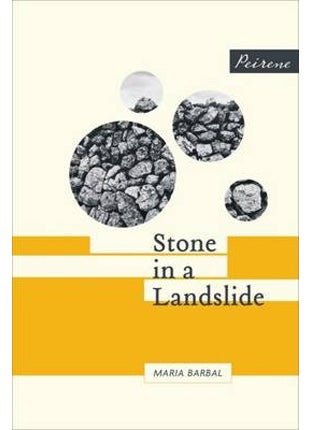Stone in a Landslide, by Maria Barbal trs Laura McGloughlin, ed Paul Mitchell
A Pyrenean life told in a quietly effective voice

Your support helps us to tell the story
From reproductive rights to climate change to Big Tech, The Independent is on the ground when the story is developing. Whether it's investigating the financials of Elon Musk's pro-Trump PAC or producing our latest documentary, 'The A Word', which shines a light on the American women fighting for reproductive rights, we know how important it is to parse out the facts from the messaging.
At such a critical moment in US history, we need reporters on the ground. Your donation allows us to keep sending journalists to speak to both sides of the story.
The Independent is trusted by Americans across the entire political spectrum. And unlike many other quality news outlets, we choose not to lock Americans out of our reporting and analysis with paywalls. We believe quality journalism should be available to everyone, paid for by those who can afford it.
Your support makes all the difference.Stone in a Landslide is the second book from Peirene Press, a new publisher of contemporary European literature which aims to bring English readers "important literary works that have never before been translated". In some ways it's an eminently suitable choice – a short novel translated from Catalan, by a writer unknown to the English-speaking world. At the same time, it's a rather bold choice – not because it's a particularly avant-garde, boundary-challenging work (it isn't), but because it's all so simple and so quiet that it's rather hard imagining this to be the one to set the world alight.
It's the story of Concepció – universally known as Conxa – who describes her life in the Pyrenees from her early teenage years through middle age from the vantage point of her closing days as a woman in her eighties, ready for death to take her.
The fifth child of six, Conxa is sent away to live in Pallarès with Tia, her mother's sister. Tia and Oncle have no children of their own, so Conxa will help them with the work in the house and on the land, and be one less mouth for her own struggling parents to feed. Although it takes years for her to be accepted in her new village, she settles in eventually, does what Tia and Oncle tell her, works hard and makes her first friend. And then she meets Jaume, who "put new colours into my mundane world". She is in love.
Tia and Oncle are unconvinced by the match – Jaume's is one of the wealthier Pallarès families, but as the second son, Jaume won't inherit. (The ownership of workable land matters much in this world). But Tia and Oncle are won over, and the young couple settle to start their own family. One winter night, Elvira is born. Jaume is working in Montsent when he gets word, and walks back through the snowy night to see his wife and meet his daughter; and then returns through the night to be back at work at daybreak. This is the moment that Tia's coldness towards him begins to thaw.
And so the seasons roll on, the fields are worked, the house is kept, a couple more children arrive. Thus far it's a hard life, but not a tragic one. The tragedy only begins when the general political rumblings that Conxa has largely ignored suddenly erupt into the Spanish Civil War.
One of the curiosities of this book is Maria Barbal's achievement in slipping a long life gracefully into a very short book. Yes, it's a life of repetition, where years pass entirely uneventfully, so a brief description of what it felt like working the fields or extensive details of mushroom-picking can effectively cover years of lived experience; but Barbal just glides past even some of the really momentous events. Conxa is pregnant a third time and, after two girls, everyone is desperate for a boy. There is great anticipation... then we turn the page and it's already happened, he's three years old, and life goes on. Before we know it, Conxa is in her eighties, the world has changed and there's no place in it for her.
Told in simple, often almost childish language, Stone in a Landslide is readable and sometimes naively touching. At its weakest, it slips into banality ("Very few festivals were celebrated in those years. There was so much work!"), but it can be quietly affecting. Once an emotional critical mass has been reached, well-chosen little moments can be invested with real punch. It's these apparently insignificant moments which – as with so many real memoirs – truly bring Conxa's story to life.
Join our commenting forum
Join thought-provoking conversations, follow other Independent readers and see their replies
Comments